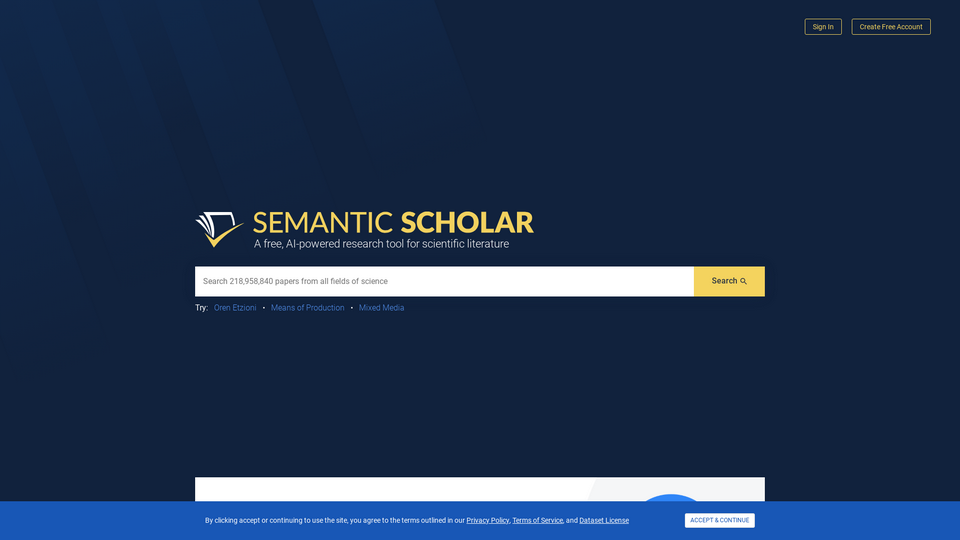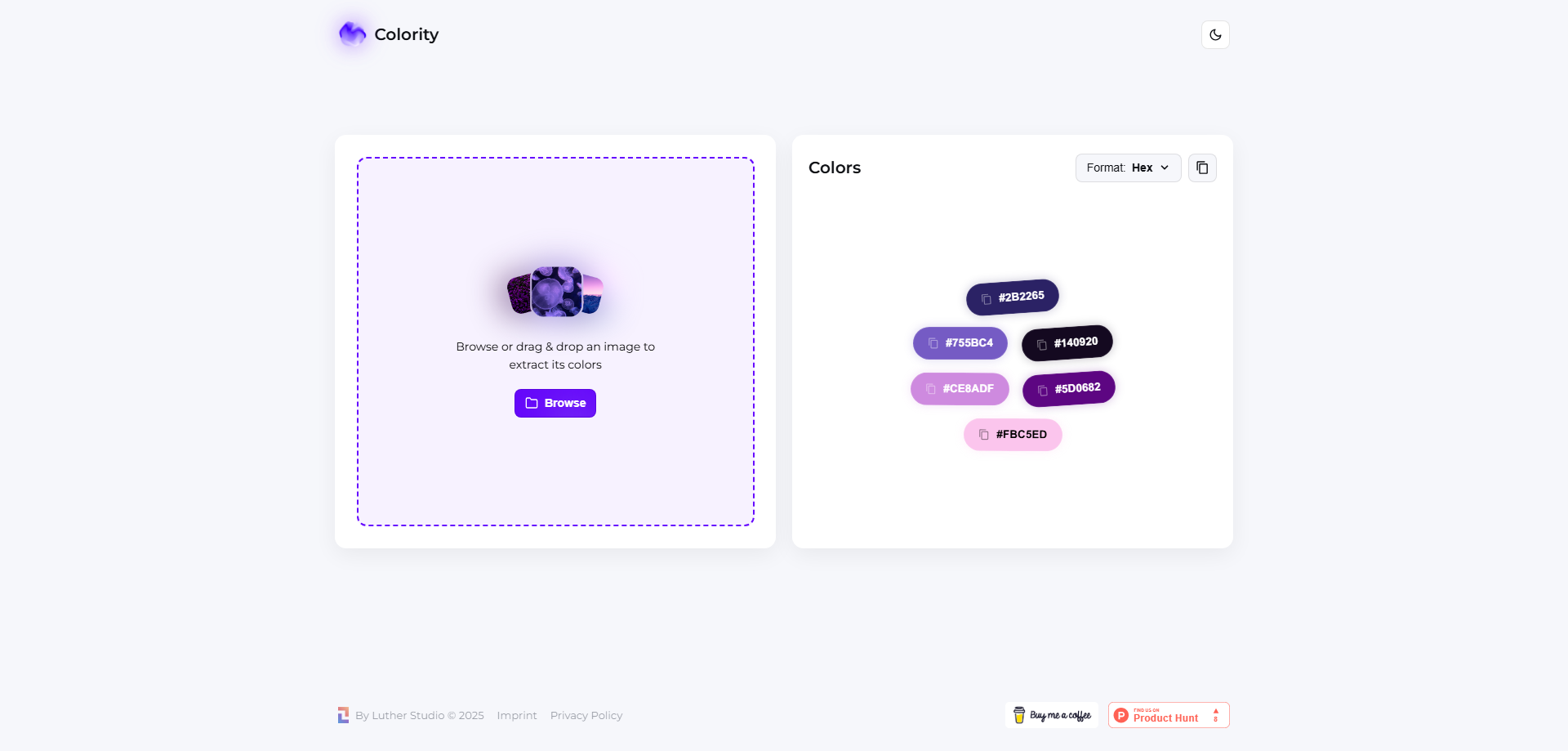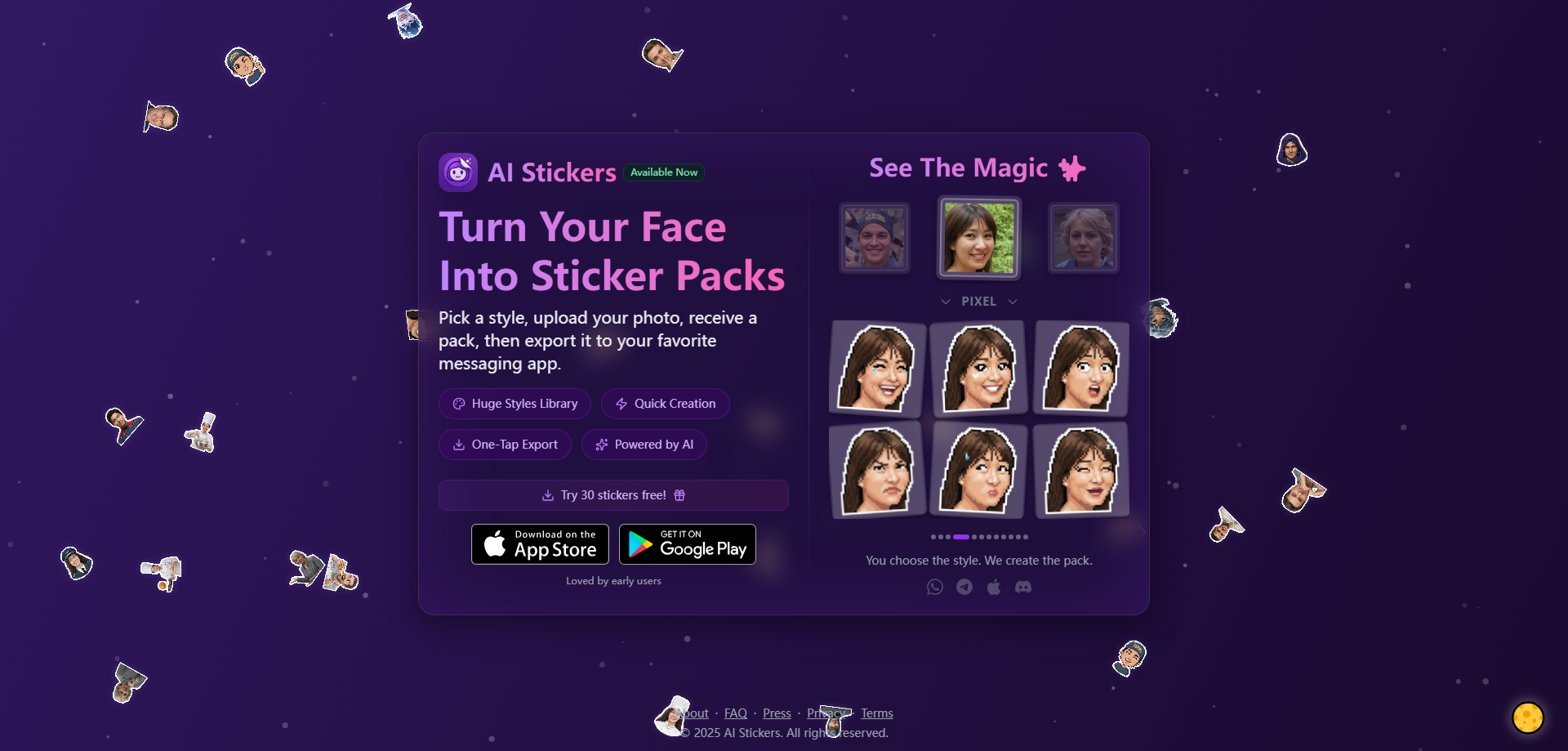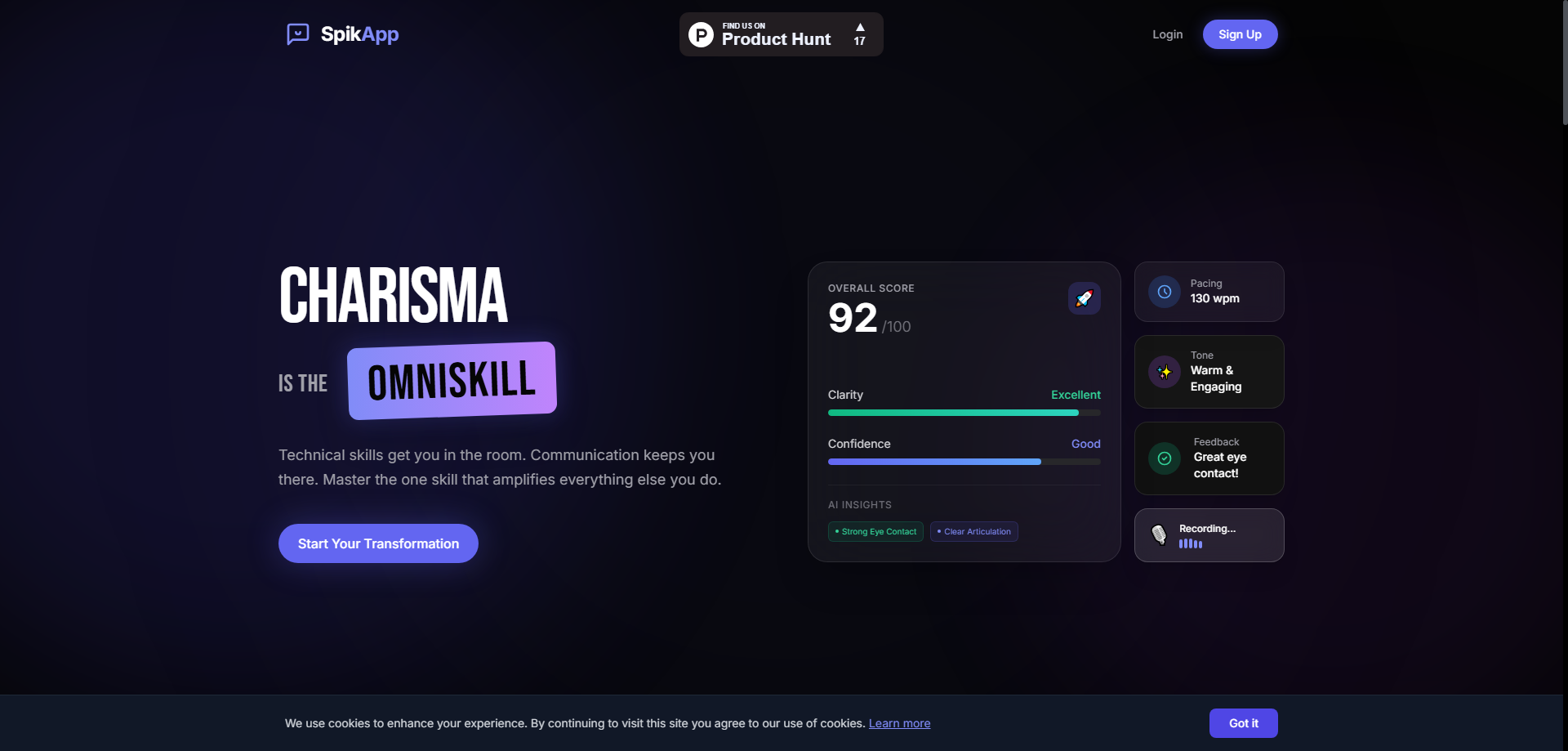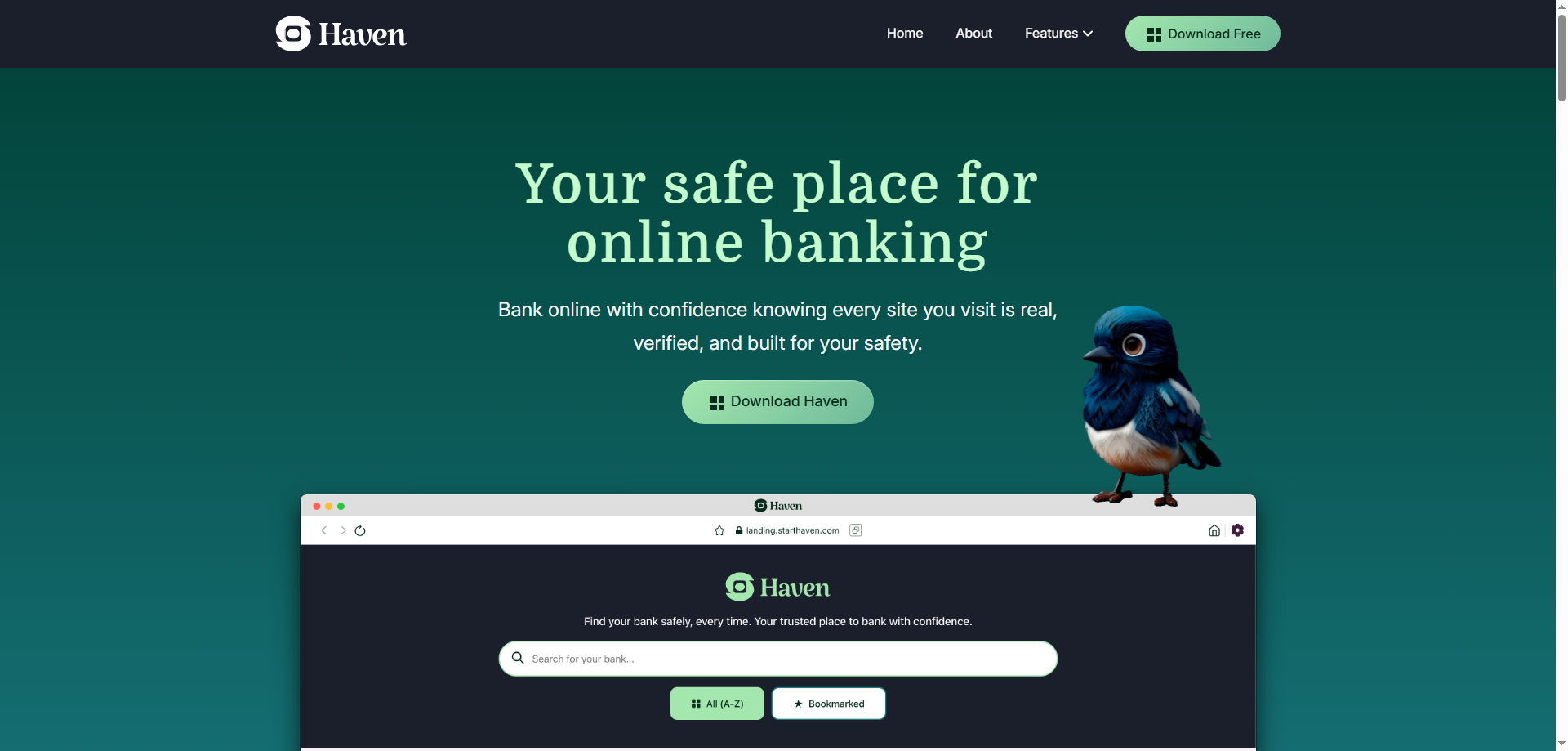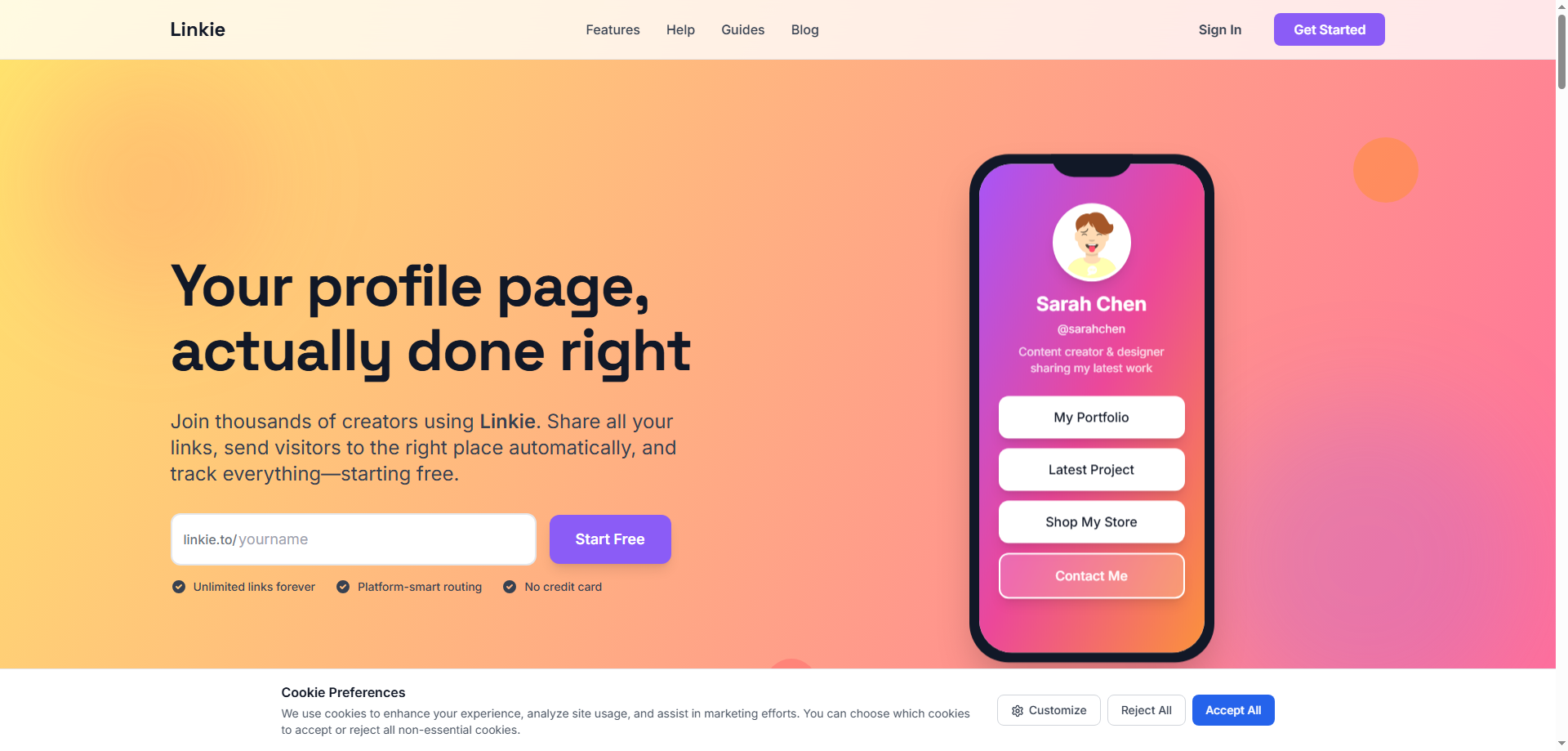What is Semantic Scholar?
Semantic Scholar is a free, AI-powered research tool for scientific literature, developed by the Allen Institute for AI. It aims to enhance the research process by providing easy access to a massive database of scientific papers.
How can I use Semantic Scholar for research?
You can utilize Semantic Scholar’s extensive database of 218,958,840 papers from various scientific fields to aid your research. Its AI-powered search functionality allows you to quickly find relevant papers and access a vast array of scientific literature.
What features does Semantic Scholar offer?
Semantic Scholar provides several features to enhance your research experience:
- Free API for developers: Allows integration of Semantic Scholar's data into your applications.
- Semantic Reader: An augmented reader that makes scientific reading more accessible and contextually rich, currently in beta for select papers.
- Comprehensive database: Access to a vast collection of research papers.
- Resources: Tutorials, FAQs, and a blog to help users maximize the platform's potential.
What is Semantic Reader?
Semantic Reader is an innovative feature designed to revolutionize scientific reading by making it more accessible and contextually enriched. Currently in beta, it is available for select papers, providing an enhanced reading experience.
Can I contribute to Semantic Scholar?
Yes, you can contribute to Semantic Scholar by joining its beta program, utilizing its API, or staying connected with the community through its blog and social media channels.
What is the aim of Semantic Scholar?
The aim of Semantic Scholar is to provide an efficient and accessible research tool for the scientific community. It strives to reduce the carbon footprint and increase the inclusivity of AI research, making scientific literature more readily available to researchers worldwide.
